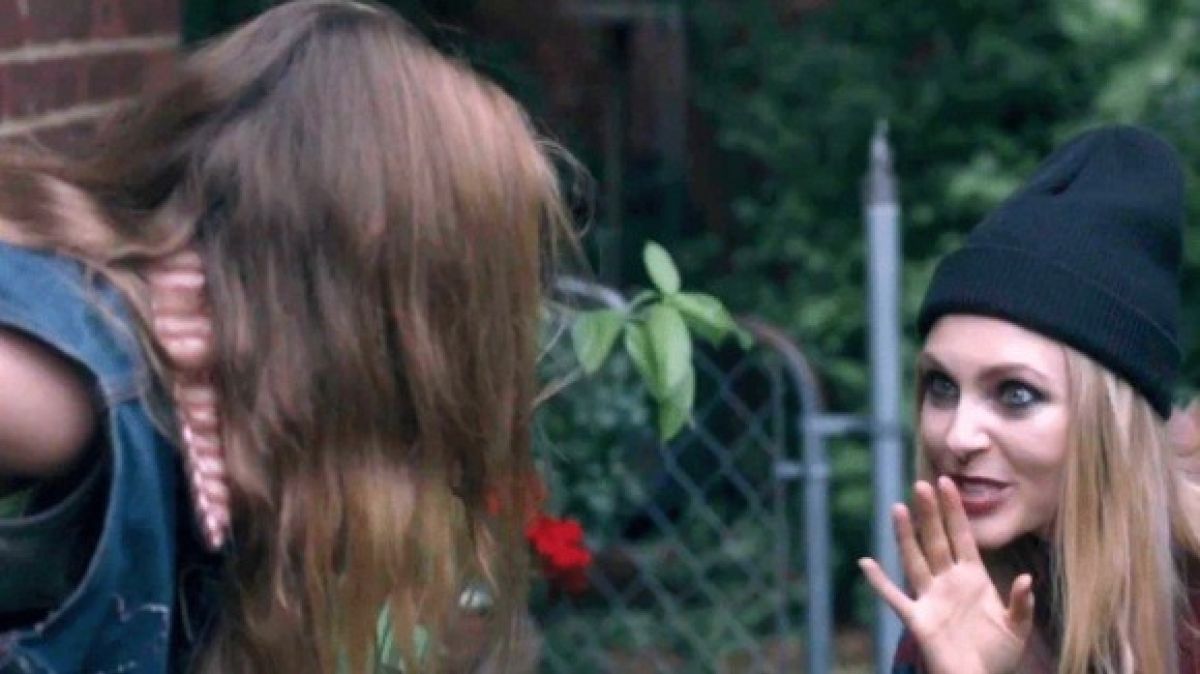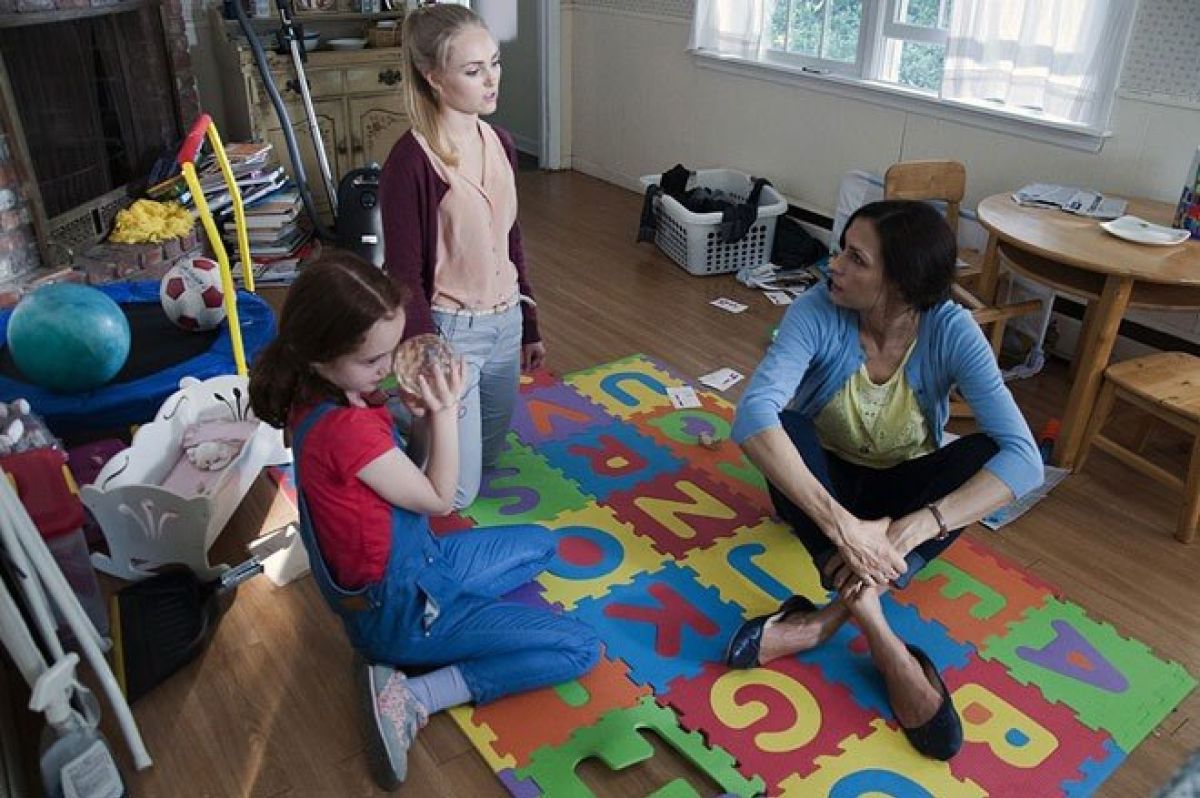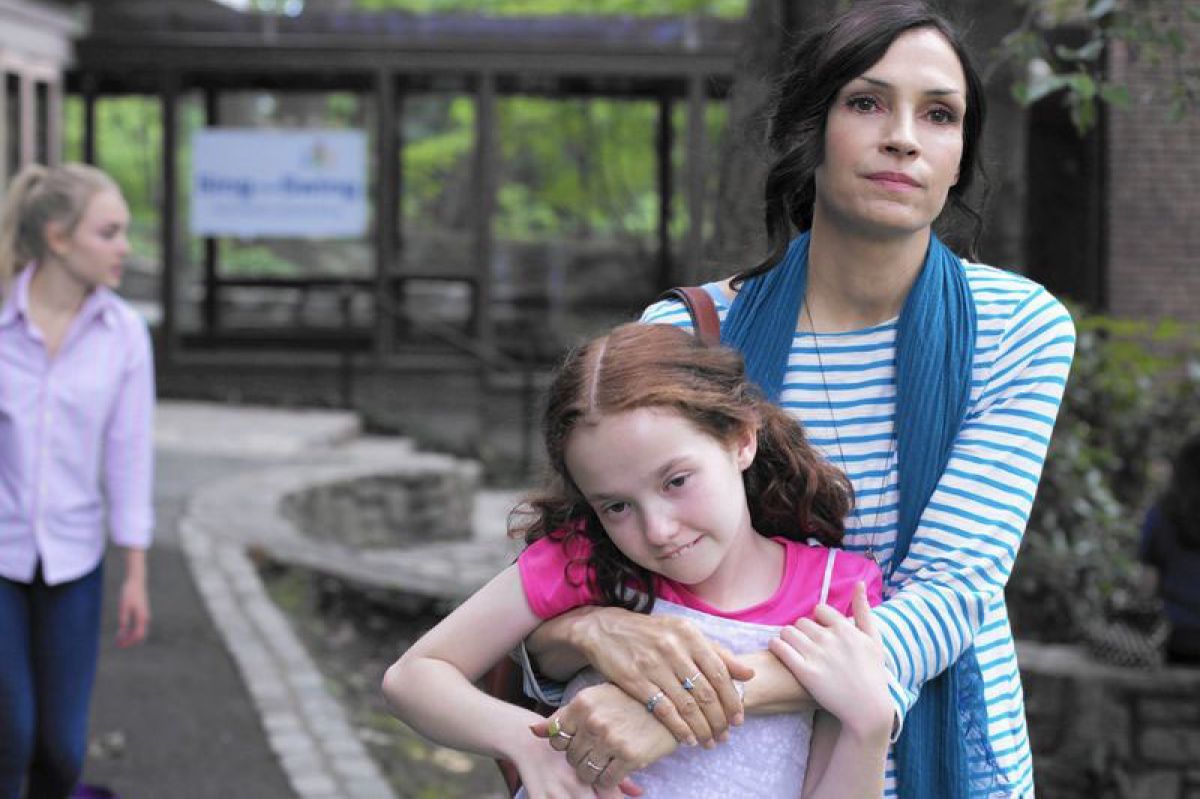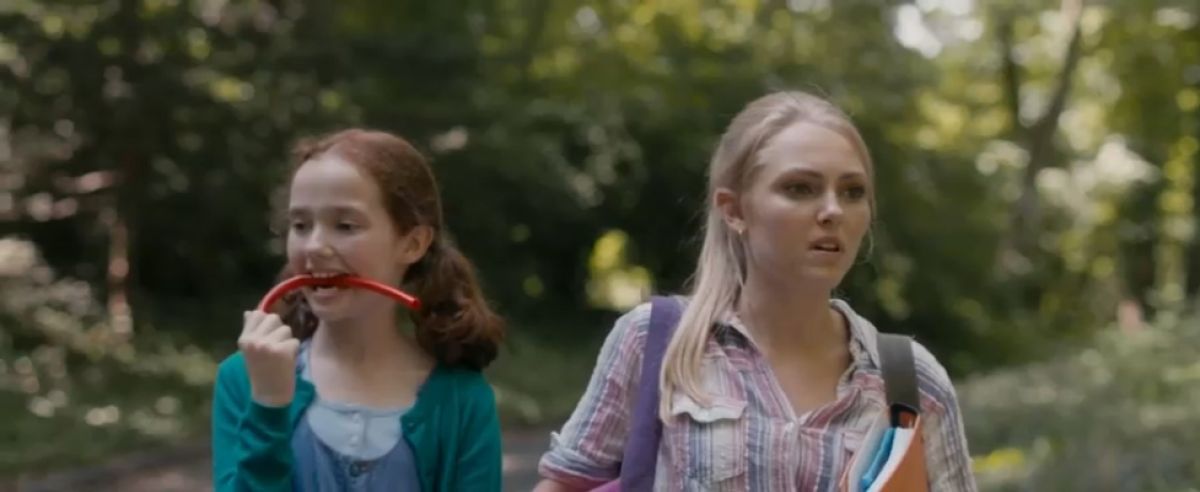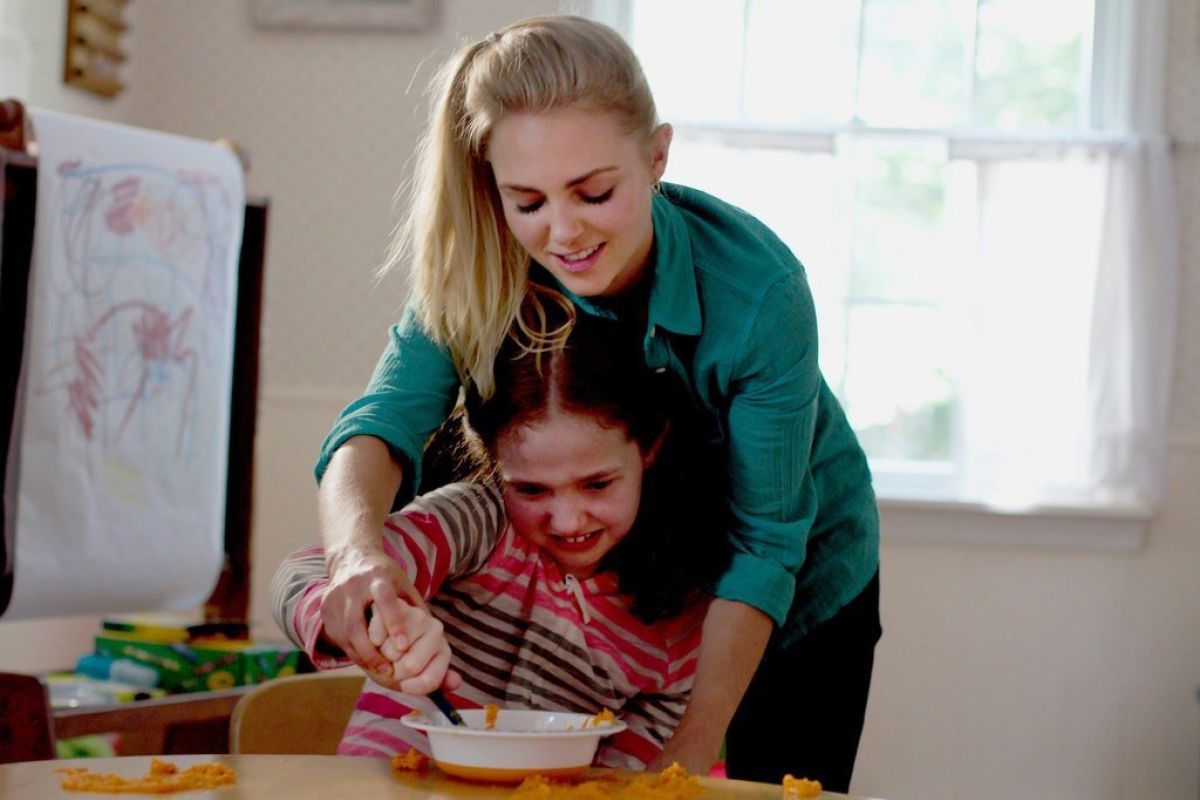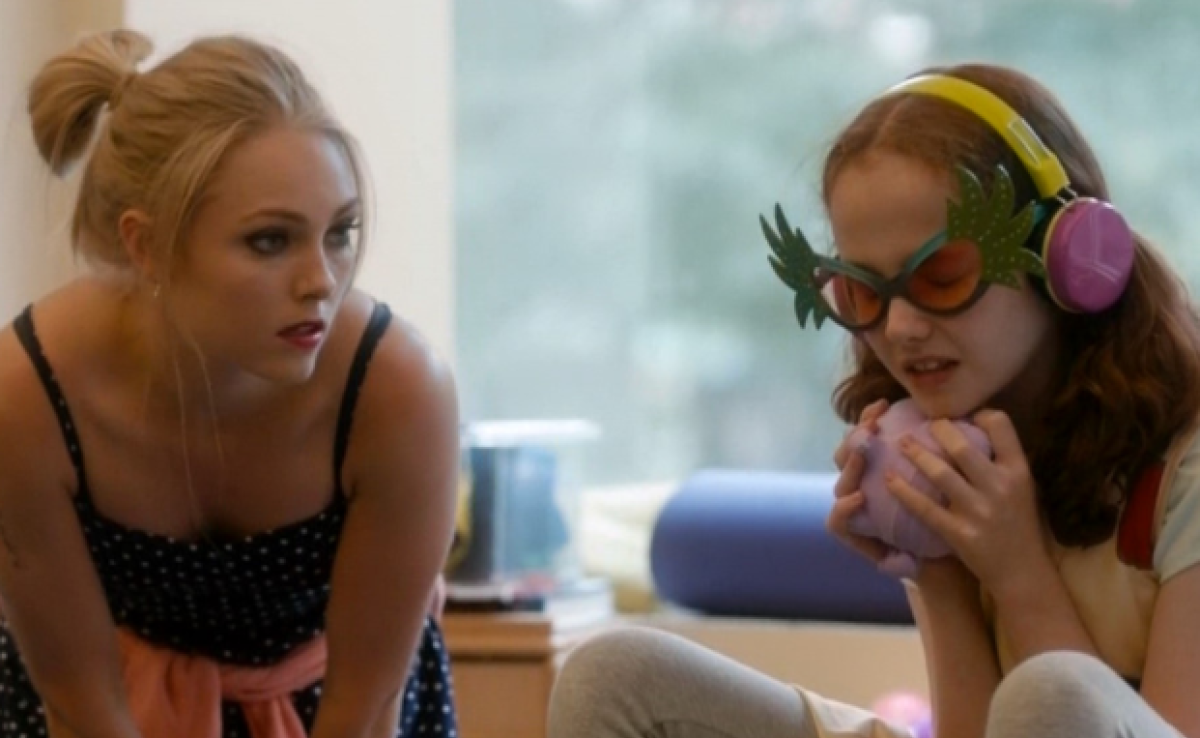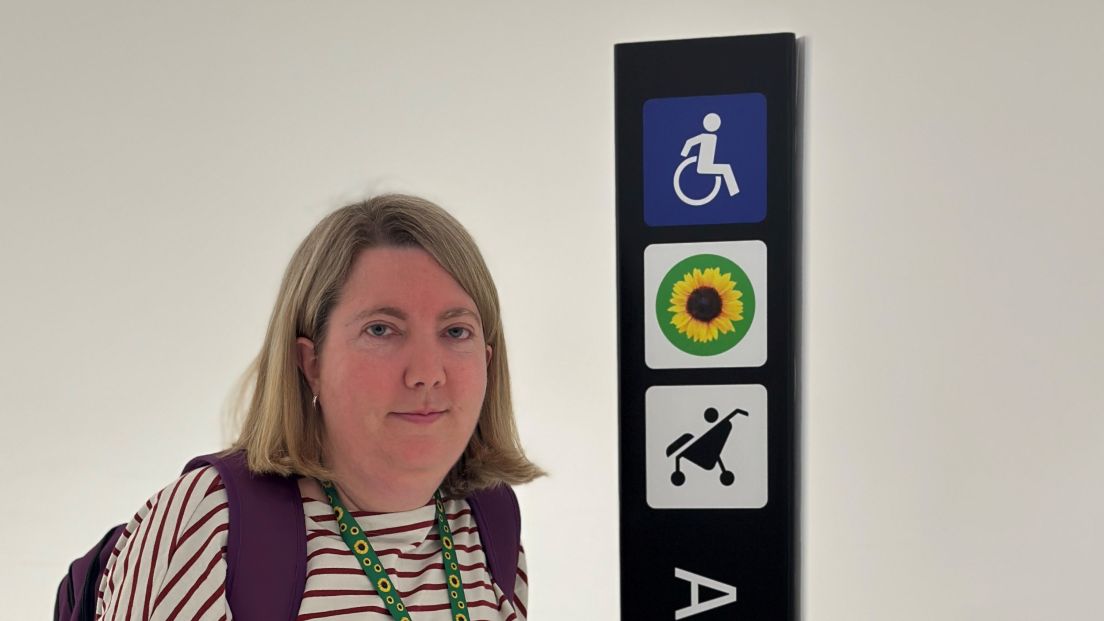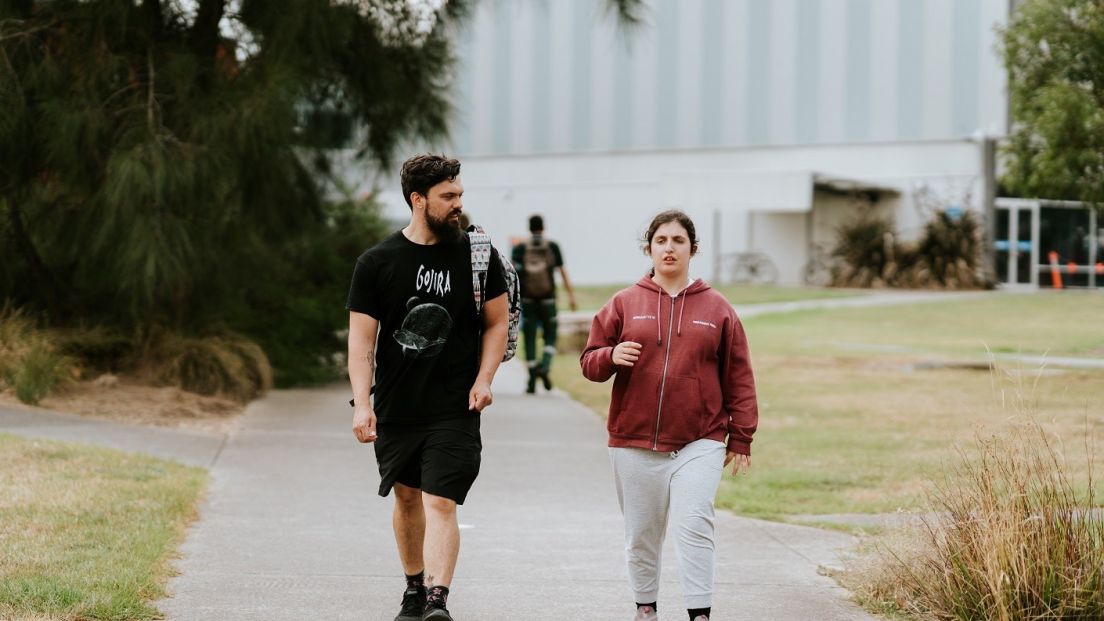
Ben Calandruccio is a movie fan, writer and a young man on the autism spectrum.
He's back with a new movie review for us.
When it comes to a student and a mentor, they have to be on the same page. Granted, it can take some time for the two to get along, but it can be challenging especially for one with autism. It may take them a lot longer than one might be able to understand. And for someone who is willing to take the challenge, the mentor may have to shape up to prove that they’re here to help the student get better. This is the main point being brought up in Jack of the Red Hearts.
Jack of the Red Hearts is a 2015 film directed by Janet Grillo and starring AnnaSophia Robb as the titular Jack as Donna, as she attempts to get her little sister, Bethany (or ‘Coke’ as she is called by her sister), back in her arms as she attempts to take care of a little autistic girl named Glory along with dealing with Glory’s family members, the Adams. While it has an interesting premise, there’s plenty that could go wrong in such a film. Will Jack of the Red Hearts deal you a winning hand? Let’s find out now.
Kicking things off, the film focuses on a young girl with autism named ‘Glory’ – who is played by Taylor Richardson. She has an obsession of colourful lights that at one point she wakes up and frolics with excitement. Even when she is told to go to bed, it takes Glory to be restrained by her parents in an attempt to help her sleep… only to jump up and down again at the light. Mother Kay is more of a doting parent compared to father Mark, who seems to be bogged down with work due to the stress of their daughter; a noted example in the beginning is when the family was supposedly in a gluten-free week, Glory ends up having sun chips anyway because Kay doesn’t want her to have a meltdown again. Admittedly, part of me was thinking that she’s exhausted with caring for her daughter.
The Adams family (not in relation to the other Addams family), besides Glory, involves mother Kay, played by Famke Janssen, known for playing Xenia Onatopp in GoldenEye, Jean Grey in the X-Men franchise, and Lenore Mills in the Taken trilogy. The father, Mark, is played by Scott Cohen, who is best known for being in The 10th Kingdom. Meanwhile, older brother Robert (who you’ll see soon in the film) is played by Israel Broussard, who has found some recent success in Happy Death Day and the recently released sequel.
The film’s main plot, however, opens up with Jack breaking her sister Coke out of a foster home. In an attempt to get by via posing as African-American members for the Red Cross through card ID, Coke is caught red-handed by the probation officer for the felony, forcing Jack to retreat to Agency of Angels – a Community Support and Assistance house – where she meets up with her old friend Daisy. Before the incident, Jack picked up a flyer for a babysitter job nearby the shop (when Mark places the flyer in the ‘Red Cross’ bucket), and asks for Daisy to help her get her foot in the door on the condition that Jack cleans the bathroom, which she does.
The day of the job meeting, Jack grooms herself to be ‘super legit’ – as her friend put it – meaning that she ditches most of her rings, bracelets, makeup and the strand of hair that has pink highlights. She ends up taking Donna Graham’s resume and position, telling the actual Donna that Glory’s father already hired someone else. The interview with Kay, ‘Donna’ fabricates her story about Rebecca; despite Kay pointing out that Becky was a terror, Jack says that she was a great client to have. Impressed with the meeting of the potential sitter, Kay gives her the job.
And a thing to note here in the scene and throughout the movie, is that it doesn’t push autism in a corner and treat it like an elephant in the room. In fact, the movie embraces and acknowledges it rather well; when it comes to autistic children there are plenty that don’t like being touched, many who have sensory issues, some trying to calm themselves with a comfort item, and so on. All of the family members treat Glory as a proud member of the family despite her flaws, with matriarch Kay being the huge standout who tries to nurture her and give her the utmost of care. How else can you explain Kay drinking a mug emblazoned with autism awareness?
The following day, after training up with Daisy on how to take care of a child with autism, Jack arrives at the house for her first day as Donna, to reveal a character that admittedly appears out of nowhere… Robert. Arriving suddenly, he proves to be an initial thorn in her side, preferring to be called ‘Robert’, showcasing a great amount of snark and secretly wants to be in a relationship with the caretaker – due to being taken by her beauty. While he does seem to mean well for the family, I’ve seen only about a handful of scenes where he’s genuinely considerate to his parents; the rest of the time he tries to find out more about Glory’s caretaker while drawing an admittedly nice portrait of her. Admittedly, this character is sending me mixed signals.
A problem one can notice, however, is that as Kay talks Jack through what she’ll be doing for her job, we learn that she has been a bit of a defeatist when it came to fighting for Glory; while she is a doting mother to her, she has been struggling to get Glory anywhere due to a lack of great progress with her daughter, and it seems to be taking a toll on her schedule. This is noted at dinnertime; when Glory attempts to grab Jack’s potatoes after going round the table for each of them (while the rest of the family and Robert’s friend Dudley pray), Kay has the audacity to call her out for reprimanding Glory and protecting her potatoes (despite technically being in the right to do so after Glory pinched her when she doesn’t take no for an answer), yet the rest of the family side with Jack, as she points out that Kay’s compliance only reinforces Glory’s manipulation.
Excited to go back to work the next day, Kay leaves Glory in Jack’s care, and it proves to be not as easy as Jack had thought. With Glory more focused on seeing the light and still pinching Jack whenever she’s trying to get her to do something right, Jack takes a shortcut and ‘borrows’ a logbook to fill out Glory’s logbook with it. Following Jack’s rest under the sun, Glory somehow gets on top of the roof – no, I’m not making that up – and Robert (arriving home with his friend Dudley not long after) helps get his sister down with a bright yellow ladder.
A thing I’m puzzled with in that scene is when Robert was grabbing Glory to get her attention, she didn’t panic. As noted with Kay and Jack, Glory initially threw a hissy fit in response – especially when she is near some sort of light, no less. Apart from her being high up, which allows it to become a key plot point later or that Robert has been more gentle compared to the earlier attempts, the closest conclusion I had come up with is Robert somehow having a close bond with Glory – which would be understandable as he knew her a lot longer compared to Jack.
The problem, however, is that I’ve rarely seen scenes where the siblings were together (and this is the only one where the two were together by themselves, I might add). Maybe it would’ve helped to like Robert more if the movie added scenes of him interacting with Glory. It could’ve counteracted with his snarky teen attitude that’s attempting to find a way to expose or be in love with Jack.
Speaking of which, Jack approaches Robert in his man-cave where he draws some artwork in his spare time. Trying to make peace with him, Robert still wonders what kind of college she went to, and does not handle it well when she questions his quoted line “wa wa”, which were actually Helen Keller’s first words: water. Credit where credit is due, Robert does call out Jack for using the word ‘retarded’; after all, this isn’t the Rain Man era anymore, where you could drop it every once in a while.
In the following days, as Glory continues to put up some sort of verbal and physical fight against a tiring Jack, the caretaker notices a trail of jellybeans after briefly visiting the orphanage, and initially panics over Glory wandering off… only for Glory to suddenly show up moments later after trying to find her. Kay begins to doubt Jack due to concerns of how she’s caring for Glory, while Mark wants to feel that he’s in a family instead of a mental hospital, as he tells his wife that their daughter may never be ready for the interview. Meanwhile, Robert – in one of the rare scenes where he’s justified to do so – calls Jack out for doing a less than stellar job with Glory.
Realising that she is potentially on her last chance with virtually no improvement to report, Jack watches Robert’s quoted movie The Miracle Worker, where she decides to take a page out of the movie’s book. She eventually teaches a resistant Glory (to the point that she attempts to run away and even resort to biting Jack) how to eat sweet potatoes by herself. Granted, it took a whole room to literally mess with but it’s a good step for the both of them. From there, Jack and Glory fortunately begin to connect more favourably with each other, with Glory showing huge signs of improvement; for instance, instead of grabbing the potatoes as the family were praying during dinner, Glory instead kindly asks for them to be placed on her plate.
The following day, Glory ends up wandering off yet again without her backpack as Jack collects a series of peripheral items that could help with her sensory issues. Without any options, she calls Robert to see if he can help figure out where Glory could be. As it turns out, his sister is in a park, standing high on a tree, and as Jack helps Robert out dealing with a trio of former friends, Glory manages to talk to Dudley on counting fingers. It seems that Glory prefers to be up high, as it allows her to answer and say things with confidence.
The noted improvement with Glory has also shown signs of improvement with the parents; Mark sings a lovely guitar song for Glory before playfully coddling her, along with showing Donna how to calm his daughter by rolling Glory up in a blanket (which Mark calls it ‘squishy time’) and letting her watch Casper. The relationship with Mark and Kay also appears to have been relatively restored into a more loving one, as they kiss passionately in what seemed like a while for each other.
Keep in mind that this is not the whole story of Jack of the Red Hearts; it gets dramatic in the final 30 minutes as our lead character deals with a series of problems, while the family gets torn over Jack’s deceit to land the job, that Robert ends up discovering. I don’t want to spoil the ending for you, but it feels like a heartbreaker to watch it.
In the end, Jack of the Red Hearts is honestly an average card number – say a 5 or 6. The movie does show that if you’re persistent and willing enough, you can encourage even the most ardent autistic child into learning to become a better behaved and much improved one, though the film, at times, feels padded with scenes that aren’t necessary. Despite all those issues, the film does make you laugh, make you cry and make you feel, and for a film that’s given an average card, it shows that this film is trying its best to be different.
While I like Famke portraying Kay and Scott portraying Mark, as the two show a semblance of chemistry and allow their characters to vent their own frustrations realistically and show their love for their little Glory, I can’t say the same for Israel portraying Robert. I’ve never been a huge fan of his character type and probably won’t be anytime soon, yet the scenes involving him with Glory are his shining and most believable moments, showing that he does care about his little sis. Speaking of which, Taylor Richardson felt very authentic in her role as the autistic Glory. And AnnaSophia as Jack as Donna… well, she does put her heart and soul in the lead character, making you able to try and sympathise with her plight of getting her sister back in her arms while getting to know Glory. You could say that she came a long way from being Violet Beauregard.
- Ben Calandruccio, April 2019
